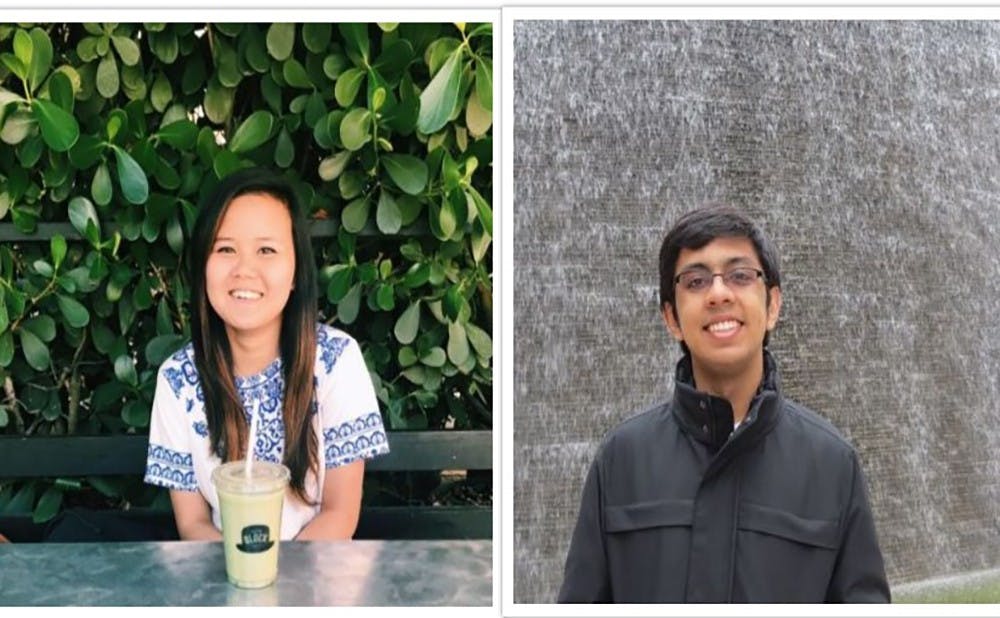Out of around 200 debate teams across the country, two Duke seniors—Salil Mitra and Jenny Jiao—emerged victorious at a debate championship this past April.
Mitra and Jiao won the United States Universities Debating Championship (USUDC), which was held at Clemson University from April 12 to 15. Both students were members of Duke University Debating Society executive board this past year. Jiao served as the group’s president, while Mitra was the external vice president from Fall 2018 to Spring 2019 for this past academic year.
The USUDC tournament is held in the British Parliamentary style, bringing together four teams for each round. The teams are given a “motion”—a topic that’s debated—and then they have 15 minutes to prepare a speech. Two teams defend a motion as the “government,” while the other two oppose the motion.
Mitra described their victory as unexpected in an email to The Chronicle.
“USUDC is a massive tournament with the best teams in the world competing,” Mitra wrote.
After competing in preliminary rounds, the top 32 teams move on to the out-rounds. After that, the two worst-performing teams get eliminated in each following round. The last four teams standing comprise the final round.
“Jenny and I were on Opening Government in finals, which is the first team that argues in support of that topic,” Mitra wrote.
In the past, Duke Debate has not qualified beyond octofinals—the round of 16—in tournaments. Coming into this tournament, Mitra and Jiao’s goal was to make it to octofinals.
“It was really incredible that we were able to continue moving on in the tournament, and we just tried our best to take it one round at a time,” Jiao wrote in an email.
Mitra described the winning moment as surreal. His initial reaction was one of shock, he wrote, followed by a general happiness about winning the tournament.
For Jiao, the most rewarding aspect of the win was making her teammates proud and seeing their faces light up as she and Mitra made their way up the stage to receive the award.
Elle Eshleman, a junior and incoming president of Duke Debate, explained that Mitra and Jiao’s victory is illustrative of the progress that the society has made in the last few years.
“We've been taking a lot of steps towards becoming a more serious team, and I think that's manifested in the increasing competitive success we've had in the past few years,” Eshleman wrote in an email.
Mitra explained how their success at the tournament shows how small student-run groups with relatively few resources can both compete and win at the highest level in the college debate circuit.
Eshleman echoed the sentiment. The win was particularly meaningful, she pointed out, because Duke’s student-run team beat teams from colleges like Harvard, Yale and Cornell—all of whom have more institutionalized debate programs and better training and financial resources.
“I think our victory means a lot for Duke debaters, who maybe don't always set their goals as high as winning tournaments, but will consider doing so now because it's clear that it is possible,” Jiao wrote.
Eshleman indicated that she intends to continue to improve Duke Debate’s competitive standing and solidify the group’s status as a prominent team on the college debate circuit.
“Duke Debate has really defined my college experience, and I'm excited to be able to serve this organization that’s meant so much to me,” Eshleman wrote.
Get The Chronicle straight to your inbox
Signup for our weekly newsletter. Cancel at any time.

